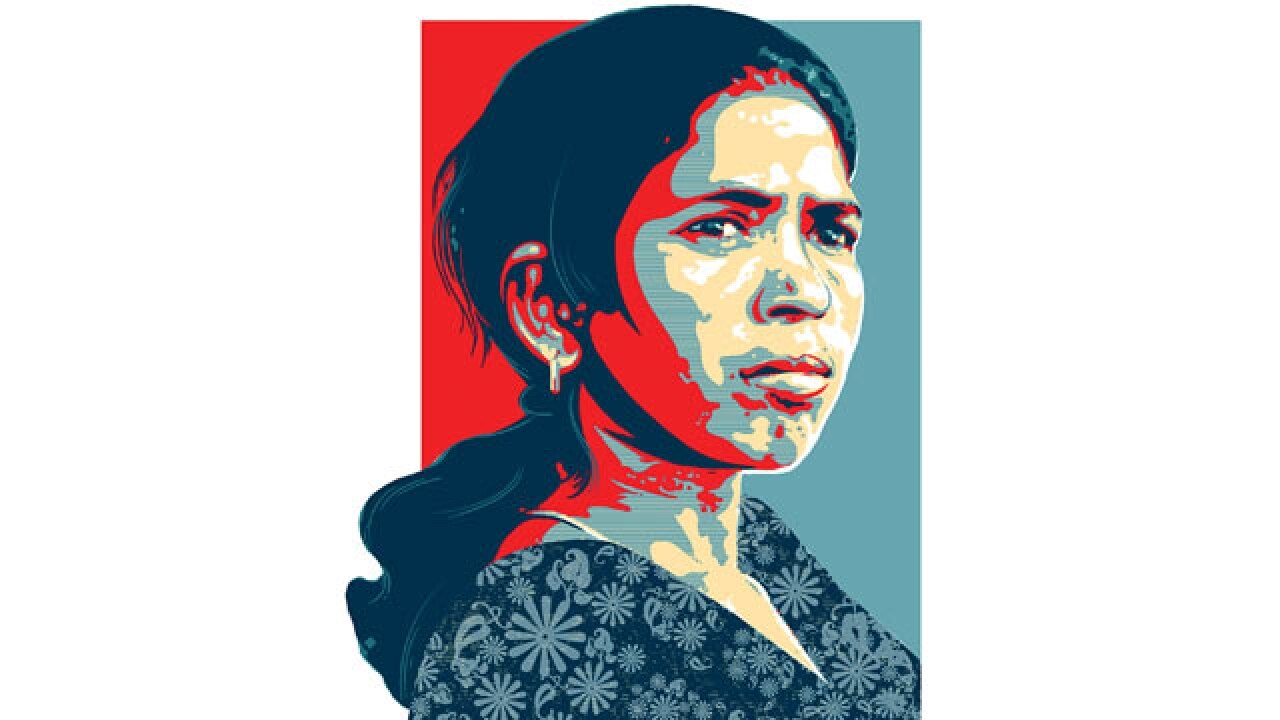
The attack on tribal activist Soni Sori must be condemned in no uncertain terms. The Aam Aadmi Party leader’s face was smeared with toxic black paint — Sori says it feels like acid because of the burning sensation — by unknown assailants while she was returning from Bastanar town to her home in Geedam. She fears for her life and is anxious about the safety of her children. Fighting for the rights of tribals has become dangerous for her and other activists who are left to fend for themselves. Sori’s is an unequal fight. She and her fellow-crusaders are pitted against mining giants who are determined to dispossess the tribals of their lands. For obvious reasons, the state government and the police are happy to look the other way, thus making the struggle of these activists extremely difficult. The Dantewada superintendent of police has been quick to dilute the case of bodily harm done to her by questioning the term ‘attack’ and the chain of events leading to the assault.
If what Sori says is true, then the police are trying to eliminate her. In other words the state machinery has been mobilised to silence people like Sori who are perceived to be the thorns in the government’s ‘development’ initiatives. Earlier, she had unsuccessfully tried to lodge a complaint against the controversial IPS officer and Bastar range Inspector General (IG) of Police SRP Kalluri for allegedly intimidating her. The police refused to file an FIR because Sori wanted to lodge a complaint under the Scheduled Castes and the Scheduled Tribes (Prevention of Atrocities) Act. The police’s contention was since Kalluri himself was a tribal, he cannot be booked under the Act.
Going by recent events, the Chhattisgarh government appears bent on favouring mining corporations at the cost of tribal welfare. In an unprecedented move, the state government had recently stripped the tribals of Ghatbarra village of Surguja district of their rights over forest lands to facilitate coal mining. The government order says that the tribals have been resisting coal mining by using their traditional rights over forest lands. The Forest Rights Act (FRA) clearly states that without taking the consent of the tribals, the state government cannot take away the lands given to these people under this Act through individual and community rights. This then becomes an issue of an elected government going against a section of its own people to serve big interests. This disastrous step has many ramifications. For one, it leaves the single largest unfragmented forest land, home to a diverse ecosystem, vulnerable to exploitation. At the heart of this struggle are two laws working at cross-purposes: the FRA and the Forest Conservation Act, 1980, which allows forest land to be used for non-forest purposes. Thanks to the struggle of activists like Sori, the tribals are still able to resist the coercive tactics of the state apparatus, but how long can they put up this fight is the moot question. Days before the attack on Sori, the Chhattisgarh government had asked the Jagdalpur Legal Aid Group — a lawyer’s collective giving legal assistance to adivasis in the face of police atrocities — to leave Bastar.
Governments in the states and at the Centre are becoming increasingly hostile and belligerent to opposition, often taking the extrajudicial route to crush dissent. At stake is the survival of India’s green cover and a tiny minority of people whose rights on these lands are sacrosanct.